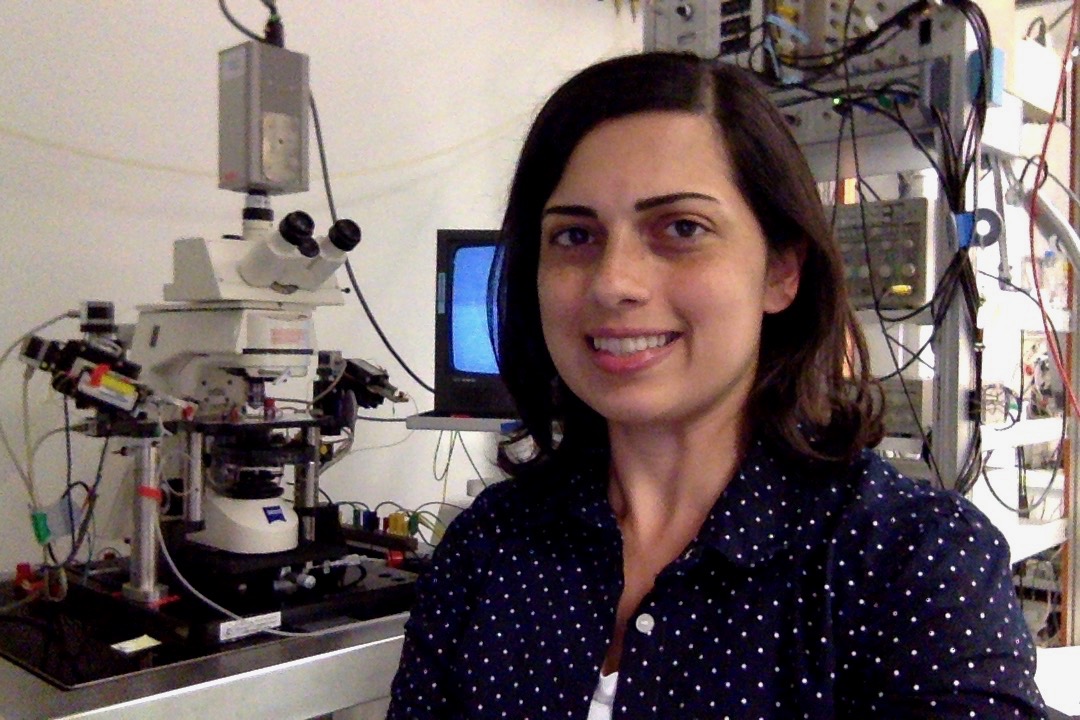Carolina Borges-Merjane
Biozentrum, University of Basel
| Project Name | Structural plasticity at mossy fiber-CA3 synapses |
| Publication Page | https://orcid.org/0000-0003-0005-401X |
| Field of research | Cellular neuroscience and physiology |
| Keywords | physiology | synapses | ion channels | neurotransmitters |
Dr. Carolina Borges-Merjane is a neurophysiologist by training with a background in biochemistry and cell biology. She investigates biophysical properties of neurons, the role of ion channels in neuronal activity and how neurons in the brain communicate via synapses. Dr. Borges-Merjane uses molecular, physiological and anatomical approaches to study these properties and mechanisms from different perspectives, to get a full grasp of how the work.
She studied Biochemistry and Cell Biology at the University of California San Diego (U.S.A.). After obtaining her Bachelor of Science, she joined the lab of Prof. Laurence Trussell at the Vollum Institute and Oregon Health & Science University (U.S.A) for her PhD thesis. For her dissertation, she studied glutamatergic synaptic transmission to unipolar brush cells, neurons present in cerebellum-like networks in the brain, important for auditory and vestibular perception, with electrophysiology and immunofluorescence with confocal microscopy.
After finishing her PhD in 2015, Dr. Borges-Merjane joined the lab of Prof. Peter Jonas at the Institute of Science and Technology (IST) Austria, where she was a Marie-Curie Individual Fellow, EMBO Long-Term Fellow and FWF Elise Richter Fellow. She used electrophysiology and electron microscopy with optogenetics, correlating function and structure, to study synaptic transmission properties under basal and plasticity states, at the hippocampal mossy fiber to CA3 pyramidal neuron synapse in hippocampus. For her postdoctoral work in Austria, Dr. Borges-Merjane was awarded the Fritz-Grasenick Prize from the Austrian Society for Electron Microscopy.
From Austria, Dr. Borges-Merjane went to Switzerland and joined the lab of Prof. Anissa Kempf at Biozentrum of the University of Basel. She uses in vivo electrophysiology, genetic modifications and behavioral assays to study changes in intrinsic and synaptic properties of neurons promoting sleep. She was awarded the Research Fund for Excellent Researchers by the University of Basel.
